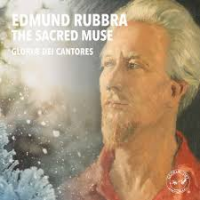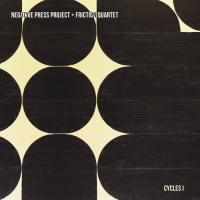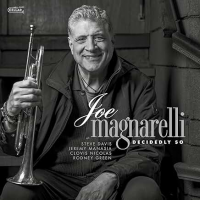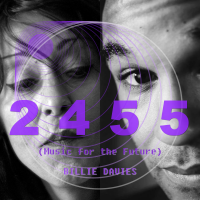Home » Jazz Articles » Album Review » Gloriæ Dei Cantores: Edmund Rubbra – The Sacred Muse
Gloriæ Dei Cantores: Edmund Rubbra – The Sacred Muse
"A long-lived, productive scholar, performer, and composer largely unknown to the musically inclined public and virtually ignored by today's highly dispersed musical establishment. To be sure, this is not an uncommon fate and is one shared by some other worthy contemporaries of the composer."
It is all too easy, in our Adderall-addled culture, to believe that the only music made, or, more specifically, the only music important enough to listen to, is that given the most attention. But for every Bach, Mozart, and Beethoven, there is a Scheibe, Stamitz, and Hummel. The great composers did not create in a vacuum. They all had friends who were composers and most were not half bad. When I got tired of the frontline, I just drilled deeper, discovering very similar music of a high quality. A case in point is 18th Century clarinet music. I love Mozart's clarinet compositions, but the composer did not live long enough to compose very much of it. Well, he had plenty of contemporaries who did, among them Krommer, Stamitz, Spore, Crusell, and (later) Weber. These men all composed credible music that is more than worthwhile to hear.
But there also exists a layer of composers beneath these who managed to produce impressive oeuvres, receiving next to no recognition at all. Often these are people one knows at ground level, never realizing that these folks did something that was so uncommonly special, like compose music. Edmund Rubbra (1901—1986) was such a composer. A musician from an early age, Rubbra was awarded a scholarship to University College, Reading where he studied under Gustav Holst. After a period of study at the Royal College of Music, where Rubbra become friends with composer Gerald Finzi, Rubbra was called up for service in World War II. The composer became a lecturer at the University of Oxford were he stayed for the next 20 years. Rubbra composed in all forms and was most noted for his choral music.
Regarding his choral music, while still a very young man Rubbra had been asked by a master to compose a school hymn. The composer at the time attended the congregational church and played piano at Sunday school. After the War, Rubbra converted to Roman Catholicism, writing a special mass in celebration (Missa in Honorem Sancti Dominici). This was the genesis of the church writing included on the present The Sacred Muse. A majority of Rubbra's choral output is represented here, orbiting one foci of his output, Nine Tenebrae Motets, written for the matins and lauds in the last three days of Holy Week. These are three collections of three motets each. They are brief, unaccompanied, and undeniably English. They are somber considerations of the Resurrection. While John Tavener (1944—2013) comes to mind here, Tavener's music is cast in the Eastern Orthodox tradition, where Rubbra's focus was the church's Western Tradition. Rubbra's Mass is the other foci of the disc. Again brief and melodic, the Mass parts are compressed and performed in a succinct and slowly tuneful manner. Gloriæ Dei Cantores performs these pieces beautifully and with reverence, thereby saving from short memories the music of a man that mattered.
What endorses otherwise typically unheard music to be heard? Before reviewing this disc, I had never heard of Rubbra. And, therein lies the charm and mystery of music listening. Musical tradition is deep, awaiting to be drilled into at any point along the chronological line from the beginning to the end. Rubbra's music has its place if for no other reason than he composed it to be heard. While religion and matters spiritual may be anathema in many cultural quarters, we ignore them at our peril. This is music that is part of our historical context, justifying its place in the catalog. Rubbra should be honored for his effort.
Track Listing
Magnificat and Nunc Dimittis in A Flat op. 65; Tenebrae First Nocturn Op. 72; Tenebrae Second Nocturn Op. 72; Tenebrae Third Nocturn Op. 72; Salutation Op. 82; Miss in Honoren Sancti Dominici Op. 66; Festival Gloria Op. 94.
Personnel
Gloriæ Dei Cantores
vocalsAlbum information
Title: Edmund Rubbra – The Sacred Muse | Year Released: 2018 | Record Label: Paraclete Records
Tags
PREVIOUS / NEXT
Support All About Jazz
 All About Jazz has been a pillar of jazz since 1995, championing it as an art form and, more importantly, supporting the musicians who make it. Our enduring commitment has made "AAJ" one of the most culturally important websites of its kind, read by hundreds of thousands of fans, musicians and industry figures every month.
All About Jazz has been a pillar of jazz since 1995, championing it as an art form and, more importantly, supporting the musicians who make it. Our enduring commitment has made "AAJ" one of the most culturally important websites of its kind, read by hundreds of thousands of fans, musicians and industry figures every month.























